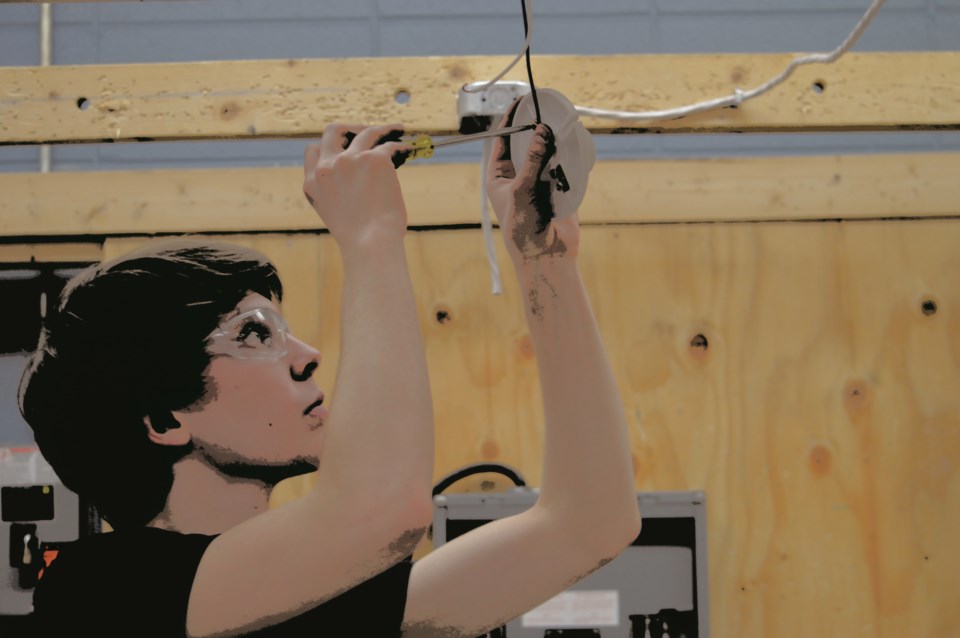The home club built off past success at the DSBN Electrical Wiring Challenge at E.L. Crossley last week.
Brad Kelly, Danny Gearing and Josh Loewen swept the competition and will receive their medals at the DSBN Skills banquet in April.
During the competition, students were given a blueprint featuring six different branch circuits to work with.
They then wired it to code before being graded by two professional electricians. Winners move onto the provincial level, which is held in Kitchener this year, before getting a shot at nationals – something Crossley has participated in the past several years.
Jon Louws and Travis Gabryelski both took home gold at nationals the past two years.
E.L. Crossley teacher and coordinator Marc Demers wouldn’t be surprised to see similar results with this year’s talent.
“It’s not luck – it’s a lot of hard work from the students.”
Demers credits the co-op programs students attend.
Each one is a part of Specialist High Skills Major program that allows students to focus their learning on a specific economic sector while meeting the requirements to graduate from secondary school.
It assists in their transition after graduation to apprenticeship training, college, university or the workplace.
With that real-life experience working with professionals already in a trade, it is producing winners not only at events like these, but also in the workforce.
“The goal is to showcase their talents so they can get an apprenticeship coming out of high school and that’s what they’re doing,” Demers said.
“The ones who medal often have companies knocking on their door, looking to see if the student would join their team.”
Demers said it’s often the overlooked aspect of competition. These students aren’t shooting hoops or running laps – they are preparing to enter an industry desperate for youth.
“The jobs in this field are out there,” Demers said. “With the average age of a trades person being 55-years-old, this is tomorrow’s future right here.”



